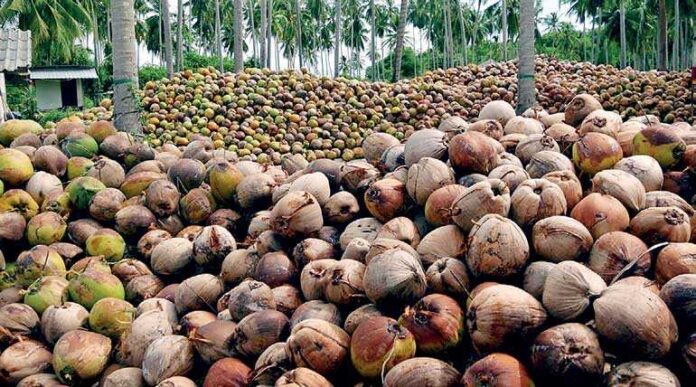February 03, Colombo (LNW): Randeewa Malalasooriya, President of the Coconut Milk Manufacturers’ Association, has highlighted the immense growth potential of Sri Lanka’s coconut industry, suggesting that it could generate up to US$ 2.5 billion in revenue, a substantial increase from the current average of US$ 850 million.
Malalasooriya told Ada Derana that there is need for strategic improvements in the sector to achieve this goal. He pointed out that the country must increase its annual coconut production to 4.5 billion nuts in the long run to meet growing demand, whilst also focusing on the import of lower-value coconut products.
These imports could then be processed into value-added products for re-export, boosting the industry’s overall output and profitability, he emphasised.
Malalasooriya further stressed the importance of reducing coconut wastage by shifting towards processed coconut food, a move he believes will have a significant impact on both the environment and the economy.
He also noted that approximately 50 per cent of the coconut industry’s revenue comes from kernel products, with Sri Lanka currently ranked as the fourth largest coconut producer in the world.
“With the right strategies in place, the industry has the potential to earn USD 2.5 billion or more,” he explained. “Despite current challenges, Sri Lanka remains well-positioned to capitalise on the global coconut market, which offers significant opportunities for growth.”
Looking to the short term, Malalasooriya expressed optimism that the industry could increase its revenue to around US$ 1.5 billion. “In the long term, we believe reaching USD 2.5 billion is very achievable,” he added, citing the need for focused attention on scaling production and improving practices across the sector.
To achieve these ambitious targets, Malalasooriya suggested that Sri Lanka could look to import raw coconut materials from countries like Indonesia or the Philippines.
These lower-value products could then be processed locally, adding value before being exported to international markets.
However, he also pointed out that the country faces challenges with the yield per coconut tree, which remains relatively low compared to global standards.
Increasing efficiency in this area, alongside transitioning more coconut consumption to processed forms, could significantly reduce waste and improve the sustainability of the industry.
Malalasooriya concluded by adding that the coconut sector holds vast untapped potential, and with strategic investment and enhanced production practices, Sri Lanka could vastly increase its contribution to the global market, benefiting both local producers and the national economy.

